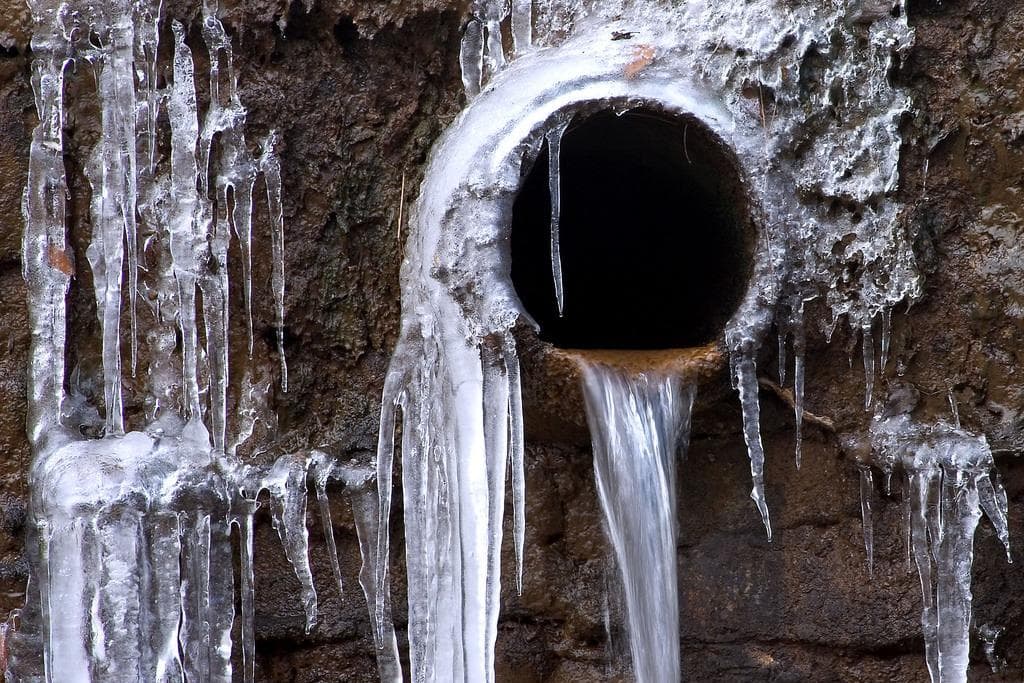How do you actually feel in relation to How to Prevent Your Pipes From Freezing?

Cold weather can ruin your plumbing, specifically by freezing pipes. Right here's how to prevent it from occurring and what to do if it does.
Introduction
As temperature levels decrease, the threat of frozen pipes boosts, potentially bring about pricey repair work and water damage. Understanding how to avoid icy pipes is essential for property owners in chilly climates.
Avoidance Tips
Protecting vulnerable pipelines
Cover pipelines in insulation sleeves or use heat tape to shield them from freezing temperatures. Focus on pipelines in unheated or external areas of the home.
Heating methods
Keep interior rooms sufficiently warmed, particularly areas with pipes. Open cupboard doors to permit warm air to circulate around pipes under sinks.
Just how to identify icy pipes
Seek reduced water circulation from taps, unusual odors or sounds from pipes, and visible frost on subjected pipes.
Long-Term Solutions
Structural adjustments
Think about rerouting pipelines far from outside walls or unheated locations. Add extra insulation to attics, basements, and crawl spaces.
Updating insulation
Invest in top quality insulation for pipes, attics, and walls. Proper insulation assists keep consistent temperatures and minimizes the threat of icy pipelines.
Securing Outdoor Plumbing
Garden tubes and outside taps
Disconnect and drain pipes garden pipes prior to wintertime. Install frost-proof spigots or cover outside faucets with protected caps.
Comprehending Icy Pipelines
What triggers pipes to freeze?
Pipes freeze when exposed to temperature levels below 32 ° F (0 ° C) for extended durations. As water inside the pipelines freezes, it increases, taxing the pipe walls and possibly creating them to burst.
Risks and problems
Icy pipes can lead to supply of water disturbances, home damages, and expensive repairs. Burst pipes can flooding homes and trigger extensive structural damages.
Indications of Frozen Water Lines
Recognizing frozen pipelines early can stop them from rupturing.
What to Do If Your Pipes Freeze
Immediate actions to take
If you think icy pipes, keep taps available to alleviate stress as the ice thaws. Make use of a hairdryer or towels soaked in hot water to thaw pipes slowly.
Verdict
Avoiding frozen pipes needs proactive measures and fast reactions. By understanding the causes, signs, and preventive measures, home owners can shield their pipes throughout winter.
6 Proven Ways to Prevent Frozen Pipes and Protect Your Home
Disconnect and Drain Garden Hoses
Before winter arrives, start by disconnecting your garden hoses and draining any remaining water. Close the shut-off valves that supply outdoor hose bibs and leave the outdoor faucet open to allow any residual water to drain. For extra protection, consider using faucet covers throughout the colder months. It’s also important to drain water from any sprinkler supply lines following the manufacturer’s directions.
Insulate Exposed Pipes
Insulating your pipes is an effective way to prevent freezing. Pipe insulation is readily available at home improvement stores and is relatively inexpensive. Pay close attention to pipes in unheated areas such as the attic, basement, crawl spaces, or garage. Apply foam insulation generously to create a buffer against the cold. You can also wrap your pipes in heat tape or thermostat-controlled heat cables for added warmth.
Seal Air Leaks
Inspect your home for any cracks or openings that could let in cold air. Seal any holes around the piping in interior or exterior walls, as well as the sill plates where your home rests on its foundation. Additionally, make sure to keep your garage door closed unless you’re entering or exiting. Leaving it open creates a significant air leak that can lead to frozen pipes.
Allow Warm Air Circulation
During cold snaps, it’s essential to allow warm air to circulate evenly throughout your home. Leave interior doors ajar to promote better airflow. Open kitchen and bathroom cabinets to help distribute heat consistently around the rooms. If you have small children or pets, be sure to remove any household chemicals or potentially harmful cleaners from open cabinets for safety.
Let Faucets Drip
A small trickle of water can make a big difference in preventing ice formation inside your pipes. When temperatures drop significantly, start a drip of water from all faucets served by exposed pipes. This continuous flow helps prevent the water from freezing. Additionally, running a few faucets slightly can relieve pressure inside the pipes, reducing the chances of a rupture if the water inside does freeze.
https://choateshvac.com/6-proven-ways-to-prevent-frozen-pipes-and-protect-your-home/
:strip_icc()/snow-outdoor-faucet-pipes-4af65d1e5e904fb1aa7bf74071fe5d89.jpg)
Do you like reading about How To Avoid Freezing Pipes? Make a short review further down. We will be happy to see your responses about this page. We hope that you come back again in the future. Do you know another individual who is enthusiastic about the subject? Be sure promote it. Thank you so much for your time spent reading it.
Call Today